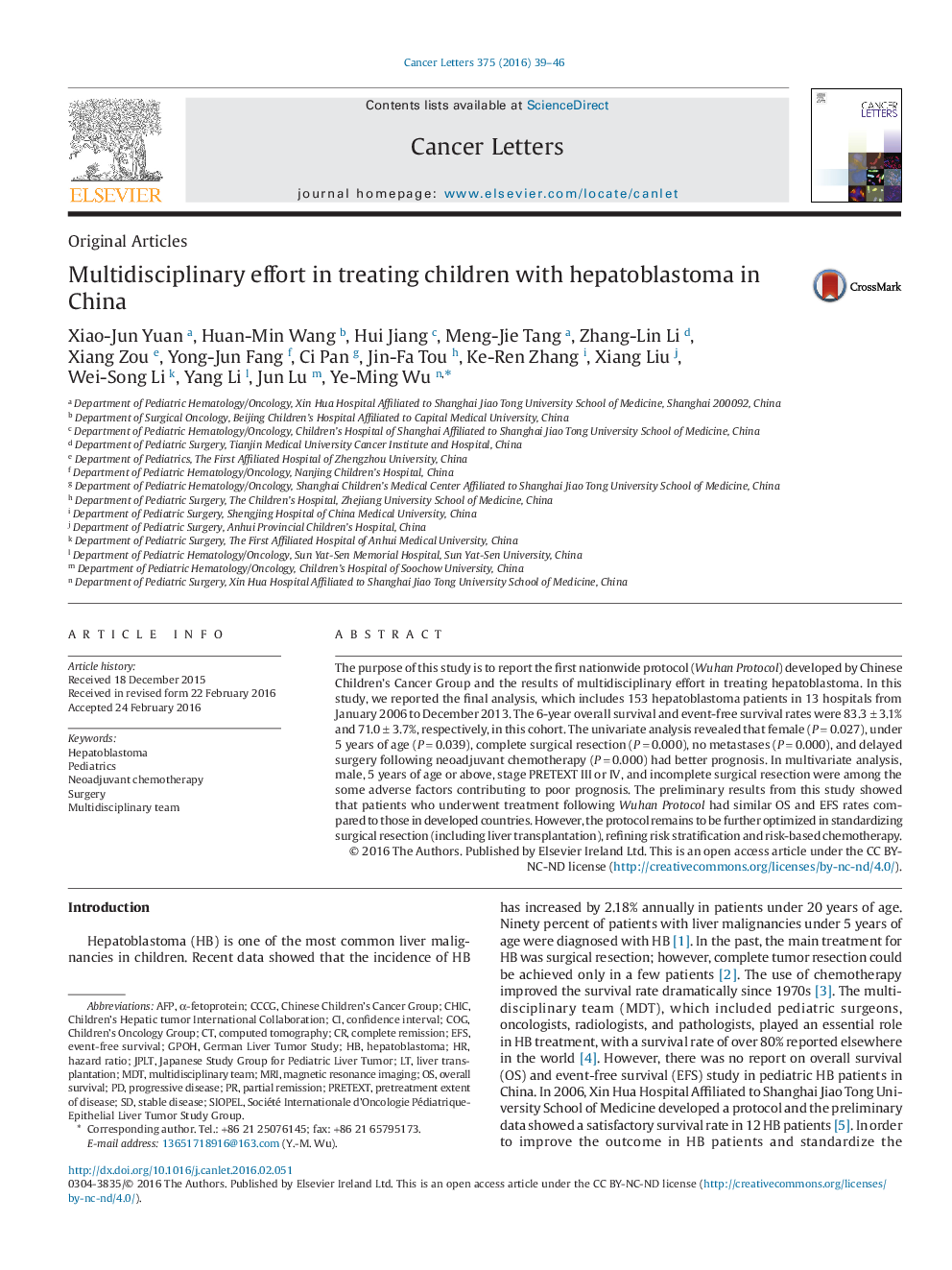| Article ID | Journal | Published Year | Pages | File Type |
|---|---|---|---|---|
| 10901344 | Cancer Letters | 2016 | 8 Pages |
Abstract
The purpose of this study is to report the first nationwide protocol (Wuhan Protocol) developed by Chinese Children's Cancer Group and the results of multidisciplinary effort in treating hepatoblastoma. In this study, we reported the final analysis, which includes 153 hepatoblastoma patients in 13 hospitals from January 2006 to December 2013. The 6-year overall survival and event-free survival rates were 83.3â±â3.1% and 71.0â±â3.7%, respectively, in this cohort. The univariate analysis revealed that female (Pâ=â0.027), under 5 years of age (Pâ=â0.039), complete surgical resection (Pâ=â0.000), no metastases (Pâ=â0.000), and delayed surgery following neoadjuvant chemotherapy (Pâ=â0.000) had better prognosis. In multivariate analysis, male, 5 years of age or above, stage PRETEXT III or IV, and incomplete surgical resection were among the some adverse factors contributing to poor prognosis. The preliminary results from this study showed that patients who underwent treatment following Wuhan Protocol had similar OS and EFS rates compared to those in developed countries. However, the protocol remains to be further optimized in standardizing surgical resection (including liver transplantation), refining risk stratification and risk-based chemotherapy.
Keywords
SIOPELCoGPRETEXTEFsMDTα-fetoproteinMRIEvent-free survivaloverall survivalpartial remissionstable diseaseprogressive diseaseAFPMagnetic resonance imagingcomputed tomographyMultidisciplinary teamcomplete remissionNeoadjuvant chemotherapySurgeryconfidence intervalhazard ratioHepatoblastomaPediatricsLiver transplantationChildren's Oncology Group
Related Topics
Life Sciences
Biochemistry, Genetics and Molecular Biology
Cancer Research
Authors
Xiao-Jun Yuan, Huan-Min Wang, Hui Jiang, Meng-Jie Tang, Zhang-Lin Li, Xiang Zou, Yong-Jun Fang, Ci Pan, Jin-Fa Tou, Ke-Ren Zhang, Xiang Liu, Wei-Song Li, Yang Li, Jun Lu, Ye-Ming Wu,
